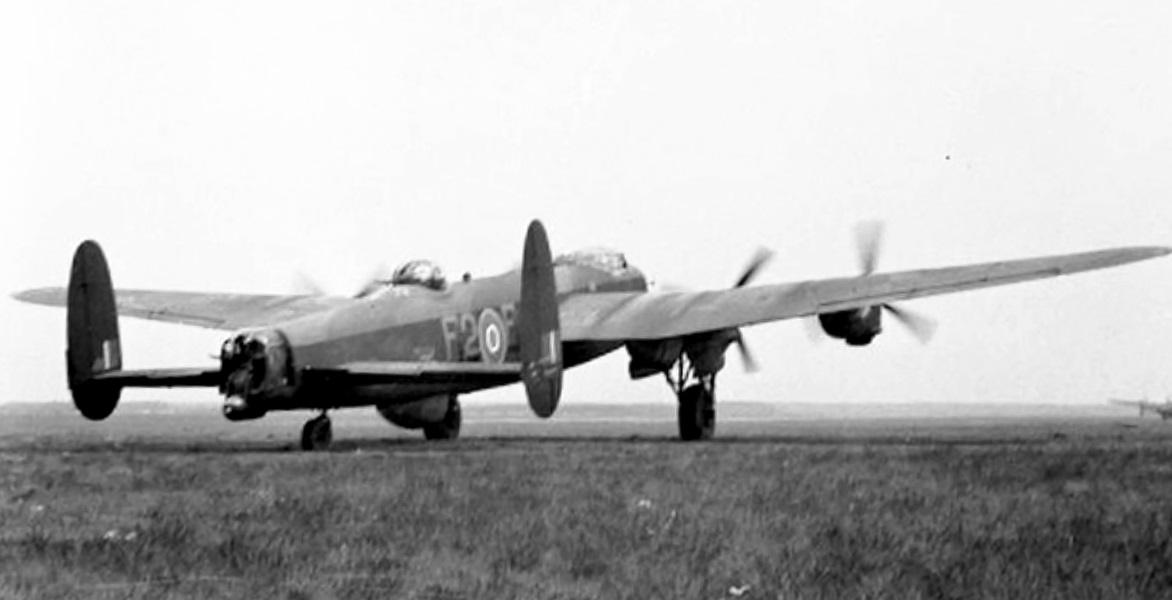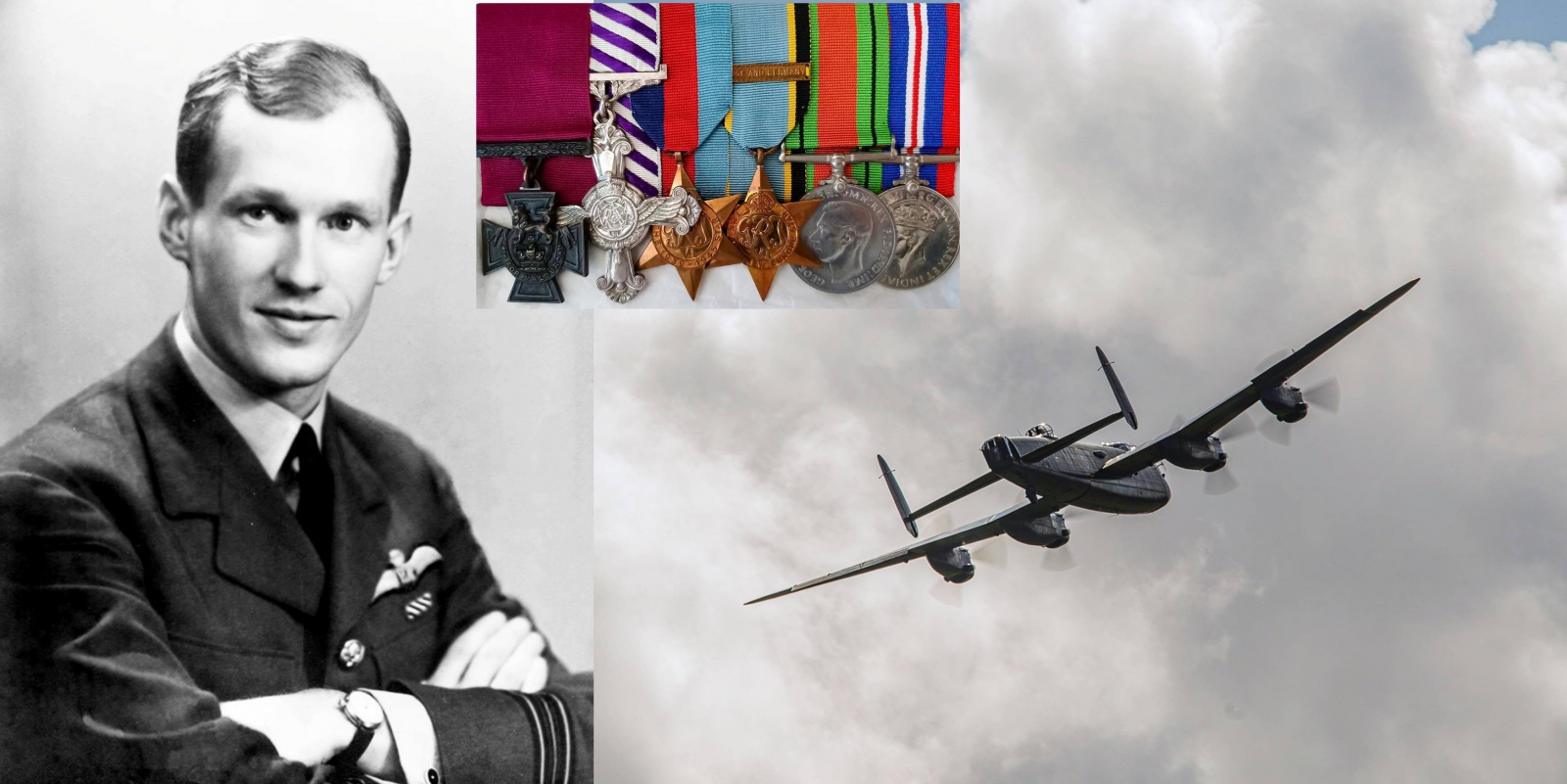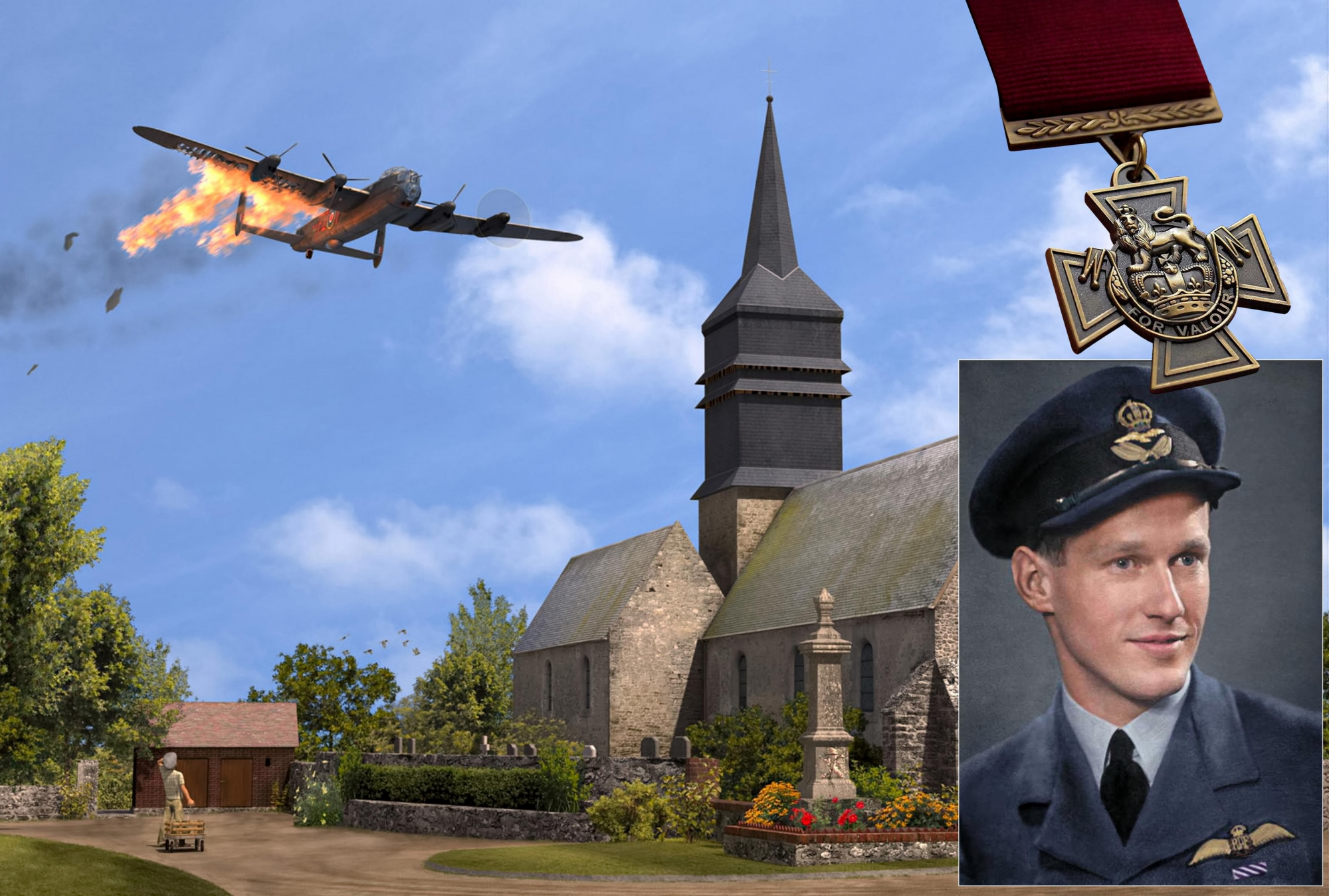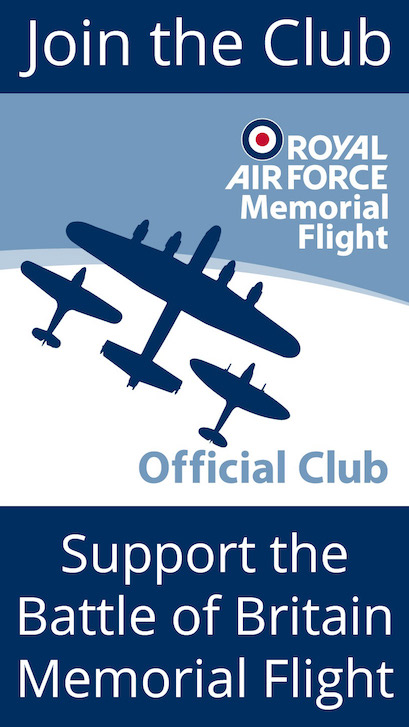Victoria Cross for Lancaster pilot Squadron Leader Ian Bazalgette – August 1944
Header main image: ‘Beyond Praise’ – Bazalgette’s blazing Lancaster ND811, ‘F2-T’, with only one engine still running, skims the village of Senantes, France, before crashing on 4th August 1944. (Artwork: Len Krenzler)
Eighty years ago this month, in August 1944, an incredible and selfless act of supreme gallantry by Lancaster Pathfinder pilot Squadron Leader Ian Willoughby “Baz” Bazalgette resulted in the subsequent award to him of a posthumous Victoria Cross (VC).
Ian Bazalgette was born in the Canadian city of Calgary in October 1918, to parents of English and Irish background. The family always called him “Will” and in 1927, when he was nine years old, they all moved back to England. When the Second World War began, he was almost 21 and having volunteered for military service he initially served with the Royal Artillery, being commissioned in 1940, before transferring to the RAF Volunteer Reserve. After completing his pilot training, he joined 115 Squadron at Mildenhall in September 1942, to fly the Vickers Wellington twin-engine bomber operationally. In the RAF his nickname became “Baz”.
When he had completed 13 operations flying Wellingtons, Bazalgette and his squadron transitioned to the four-engine Lancaster and he flew a further 15 ‘ops’ against heavily defended targets in Europe, surviving some harrowing experiences, including a crash landing. He was awarded the Distinguished Flying Cross (DFC), with the citation mentioning his “great courage and determination in the face of the enemy”. When his first operational tour was complete, he was posted as an instructor at No 20 Operational Training Unit, based at Lossiemouth in Scotland. Then in April 1944 he was ‘head hunted’ for the Pathfinder Force and joined 635 Squadron at RAF Downham Market, Norfolk, as a flight commander with promotion to acting squadron leader. He completed a number of Pathfinder target- marking operations in the lead-up to D-Day and afterwards.

On 4th August 1944, on his 58th operation, Bazalgette was the master bomber for a daylight raid against the V-1 flying-bomb storage caves at Trossy St Maxim, France. He was tasked with marking the target and controlling the Main Force bombing. Nearing the target his Lancaster, ND811 ‘F2-T’, came under heavy anti-aircraft fire; both starboard engines were put out of action and serious fires broke out in the starboard wing and the fuselage. As the deputy master bomber had already been shot down, with the deaths of all those on board, the success of the attack depended on Bazalgette. Knowing this, he pressed onto the target, despite the state of his Lancaster, and marked it accurately.

After dropping his markers and bombs, Bazalgette’s crippled Lancaster dived almost out of control and bursts of ‘flak’ hit the nose of the aircraft badly injuring the bomb aimer, Flight Lieutenant Ivan Hibbert, whose right arm was almost torn off. The flight engineer, Sergeant George Turner, and the wireless operator, Flying Officer Charles “Chuck” Godfrey, dragged Hibbert from his position in the nose in a critical condition, carried him to the rest bunk, applied a tourniquet and injected him with morphine. The crew attempted to fight the flames inside the aircraft, but smoke filled the fuselage and the mid-upper gunner, Flight Sergeant Vernon Leeder RAAF, was overcome by fumes. Leeder was not part of Bazalgette’s usual crew, but had replaced Flight Sergeant Hurnhall for this sortie. Then the port inner engine failed and, with only one engine running, altitude could no longer be maintained. Bazalgette ordered those of his crew able to do so to abandon the aircraft, and four of them bailed out from low altitude. All four survived and subsequently evaded capture with the help of the French Resistance. Aware that his bomb aimer and the mid-upper gunner could not bail out and refusing to leave them, Bazalgette attempted to crash-land the burning Lancaster in a last effort to save them. He managed to put the aircraft down in a field near the small French village of Senantes, but moments later the Lancaster exploded and Bazalgette and his two comrades were killed.

In August 1945 Squadron Leader Ian W Bazalgette DFC was posthumously awarded the Victoria Cross for his heroic sacrifice in not abandoning his two wounded comrades who remained on board. The citation for his VC in the London Gazette included the words, “His heroic sacrifice marked the climax of a long career of operations against the enemy. He always chose the more dangerous and exacting roles. His courage and devotion to duty were beyond praise.”
LEST WE FORGET







